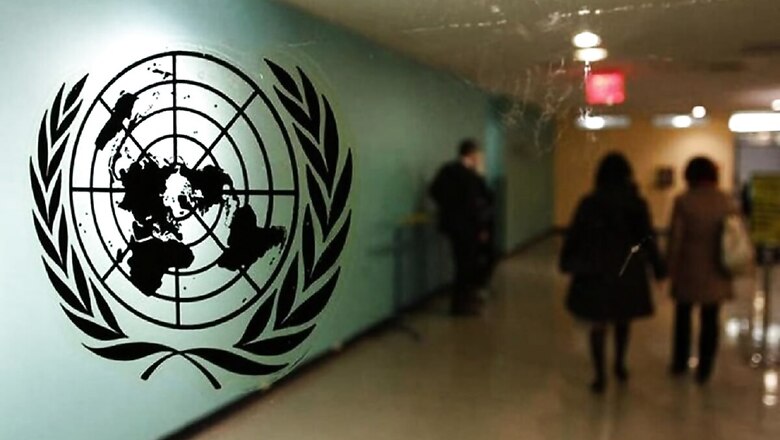
views
New Delhi: India on Thursday hit out at two UN Special Rapporteurs for criticising its policies towards Jammu and Kashmir, asserting that the region is an "integral and inalienable" part of the country. India's reaction came after Special Rapporteur on minority issues, Fernand de Varennes, and Special Rapporteur on freedom of religion or belief, Ahmed Shaheed, made adverse comments on withdrawal of Jammu and Kashmir's special powers in 2019.
Their comments were part of a press release published on the website of the Office of the United Nations High Commissioner for Human Rights. In response to media queries, External Affairs Ministry spokesperson Anurag Srivastava said the press release has been deliberately timed to coincide with the visit of a group of ambassadors to Jammu and Kashmir.
"The press release disregards the fact that Jammu and Kashmir is an integral and inalienable part of India and the decision of August 5, 2019, regarding the change in the status of the state of Jammu and Kashmir into a Union Territory of India was taken by the Parliament of India," he said. Srivastava said the press release failed to take into account the steps aimed at ending decades of discrimination, enshrining democracy at the grassroots level through successful conduct of local elections for the District Development Councils (DDC), and ensuring good governance.
"The press release has ignored the positive impact of extending laws applicable to the rest of India to Jammu and Kashmir, enabling the people of Jammu and Kashmir to enjoy the same rights as available to people in other parts of India," he said. In the press release it was said the UN human rights experts are concerned over India's decision to end Jammu and Kashmir's autonomy and enact new laws that could curtail the previous level of political participation of Muslim and other minorities in the country.
"The loss of autonomy and the imposition of direct rule by the government in New Delhi suggests the people of Jammu and Kashmir no longer have their own government and have lost power to legislate or amend laws in the region to ensure the protection of their rights as minorities," Varennes and Shaheed were quoted as saying in the release. Srivastava said the press release calls into question the larger principles of objectivity and neutrality that the Special Rapporteurs are mandated by the Human Rights Council to adhere to.
"We expect the Special Rapporteurs (SRs) to develop a better understanding of the issues under their consideration before jumping to hasty conclusions and issuing press statements," he said. He further said, "It is deplorable that the SRs, after sharing their questionnaire on February 10, did not even wait for our response. Instead, they chose to release their inaccurate assumptions to the media." .
.
Read all the Latest News, Breaking News and Coronavirus News here

















Comments
0 comment